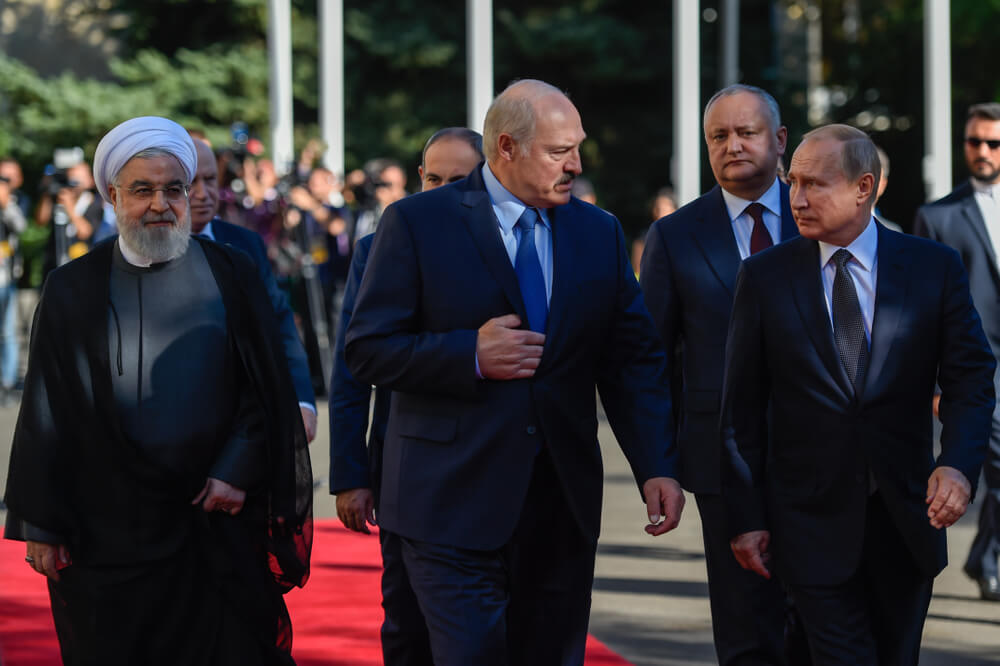There is one week left for political parties to propose their candidates for the parliamentary and local elections in Belarus, planned for February 25.
However, Alexander Lukashenko's government does not allow surprises among candidates.
With a series of decisions, followed by years of repression against political opponents, Lukashenko has created an environment in which his authoritarian rule would receive another formal confirmation.
10 million citizens of Belarus are preparing for another round of democracy simulation, as they choose between candidates from only 4 parties, all loyal to Lukashenko.
All others have been removed from the scene, many critics are in exile, and another 1,500 opponents of the regime are in Belarusian prisons.
Because of this, there is no chance that the forthcoming elections in Belarus will alter the current political climate or weaken Lukashenko's steadfast autocracy.
A new centre of power
These are the first elections after the most significant attempt at democratic change in Belarus in 2020, during which the 3-decade-long regime of Alexander Lukashenko found itself on the brink for the first time.
The Belarusian president has made significant preparations for the forthcoming elections, even though the real power and influence in the country does not come from the state parliament nor the local authorities that citizens will vote for on February 25.
Lukashenko will need confirmation of their legitimacy to round up support for his own rule. The elections will, in essence, be a test of the functioning of the system of autocratic rule for the 2025 presidential elections, in which the Belarusian leader expects a new mandate.
Belarus will get a new institution in the system of government, a creation of Lukashenko's apparatus - the All-Belarusian People's Assembly
In the forthcoming elections, Belarus will get a new institution in the system of government, a creation of Lukashenko's apparatus - the All-Belarusian People's Assembly.
The purpose of this massive body of 1,200 representatives is to concentrate on real political power and, at the same time, serve as a para-democratic shield for one-man rule.
The People's Assembly will be formed in the months following the parliamentary and local elections, and representatives in this new body will be elected by parliamentarians and local authorities. Along with them, the members of the new institution will be representatives of civil associations, state companies, and farmers.
What they have in common is that the president’s closest circle would filter their election.
"The highest body of democracy", as Lukashenko called it, after last year's constitutional changes that established the People's Assembly, will have broad powers, including declaring a state of emergency in the country and cancelling the decisions of the parliament or the government.
It will give birth to true political power in the form of the "Presidium", a 15-member body, including Lukashenko, who will also appoint the members of this para-government. This body will lead the country's politics under the control of the president.
Support in case of crisis
Lukashenko is re-designing the political system of Belarus, combining the legacy of the USSR and today's China in creating a ring of few but top performers around the undisputed leader.
This Assembly could serve Lukashenko as a support if someone else takes over the presidency in the elections. In that case, the real levers of power would once again rest in his hands, not in the hands of the president.
The leader of Belarus is further reducing the already weak ties with the democratic culture of Europe
Traditional institutions of democracy, such as the state parliament, are thus further cast into the shadows and serve only as a form without actual political content.
Apart from being the embryo from which the tightly controlled People's Assembly will be born, and from it the de facto government - the Presidium.
In this way, the leader of Belarus is further reducing the already weak ties with the democratic culture of Europe. His country, along with its ally Russia, is economically isolated and expelled from leading multilateral organisations, such as the Council of Europe.
Becoming part of Russia
Lukashenko is also attempting to synchronise with Russia by redefining the institutional order. They are part of the State Union, an alliance of 2 economies and security systems.
His move towards consolidating the autocracy, to be confirmed in the forthcoming elections, is also intended to reduce the possibility of "diversion" from the opposition through regular institutions and elections.
In these elections, Aleksandar Lukashenko is setting up a structure that he hopes will be a sufficient barrier to a more severe attack on his autocratic rule, which could follow next year's presidential elections.
 Lukashenko has appropriated an alliance with Russia as the only remaining option for maintaining his personal rule
Lukashenko has appropriated an alliance with Russia as the only remaining option for maintaining his personal rule
To that end, a law was recently passed that absolves all presidents of the Belarusian state from any legal prosecution after their term in office by automatically appointing them members of the Senate (Upper House), who enjoy immunity upon leaving the presidential office.
Given that Lukashenko has been the only president of Belarus since independence, the law was tailored exclusively for him and his fears of some future democratic changes.
Belarus refused to accommodate an OSCE observation mission in the forthcoming elections, even though it is still a member of this organisation. This means that the next February elections will not have any international legitimacy, nor is Lukashenko looking for any. He has appropriated an alliance with Russia as the only remaining option for maintaining his personal rule.
According to the Kremlin announcements, that alliance will be expanded even more in the next 3 years, particularly in the security and economic spheres.
Lukashenko sees this alliance as a guarantor of his personal rule. After the forthcoming farcical elections and the formation of new institutions, Belarus' loyalty to its big neighbour will be even greater.